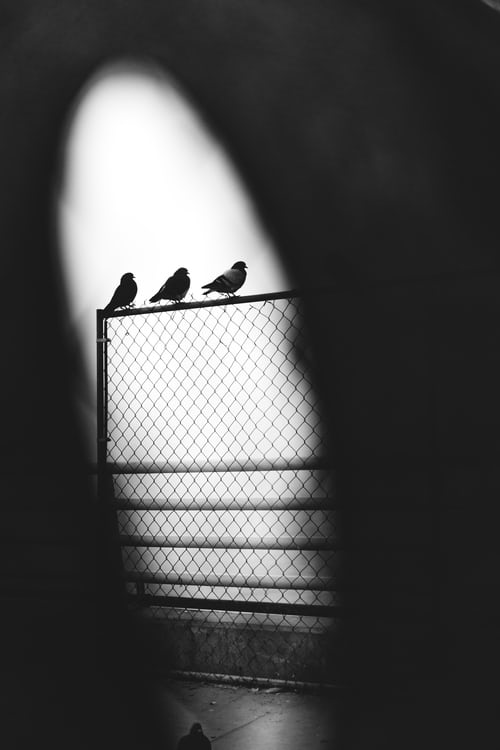Anger Management in a Time of COVID-19 Pandemic and Riotous Grief
By Ron L. Dowell
I
First, understand what you call a riot
was the Watts rebellion ending our 1965
Little League season. No last inning strikeout,
but choking smoke, thick of burning rubber,
no walk-off homerun, but smoldering wood,
no game-winning catch, but chemicals scorching
our throats, chest, lungs, interrupting me & Gerald’s
sunrise to sundown baseball passion on Gopher
Hole Stadium, redlined with public dollars. No,
never a riot, senseless, though it shines so.
CHP/LAPD, Marquette Frye, blood-wild, illogical emotion.
But rebellions always protest convention,
give sound to silence, fires cold dark places,
matter to people ignored, who attend unlettered schools,
& suffer grinding inequity from skin-color separation.
Baseball galvanized & helped equalize the offsets.
Sequestered atop our diamond-patterned chainlink
backstop, the fire surrounding us moved quickly,
scattered pigeons, our world burned in a square
circle like bases around our public housing
perimeter, eyes red, local stores convulsing
fire; Country Farms, Sav-on, Shop Rite, Safeway.
An uprising? Maybe—but never a riot,
& shaking, we scrambled, gasping. We played catch.
II
Jurist acquit Stacy Koon & Laurence Powell
that spring 1992 for clubbing shitless
Rodney “Can we get along?” King. How bad do you
jack a neighborhood before the hood
says enough? Many times the bucket visits the well,
one day the bucket bottom falls out. No, no riot.
After mad men smash Reginald Denny’s skull with bricks,
& four Good Samaritans help his distress,
the Little League board postpones practice that day & forever.
Choking smoke, thick of burning rubber, chemicals
& smoldering wood seeps inside our tiny Watts
home searing throats, chest, lungs.
Why can’t we play, daddy?
my three children ask while watching on TV
their favorite Jack in the Box burn, an hysterical
newsman calling it a riot as if it’s reasonless,
Why do they burn their stores? Why?
says he, ducking under an Olde English 800 billboard,
behind him, a looter wheels from the drugstore’s ash
his shopping cart, Huggies, Seagrams overloaded.
A young boy helps his father loot the sporting goods,
them taking a thermos & two Thigh-Masters, the
scene shifts to an earlier footage, stores like Empire
Liquor, which murdered Latasha Harlins
over orange juice & Tom’s Liquor aflame, a woman,
plastic bags laden with canned food & toilet
paper. Club Reno, an auto parts store ablaze,
armed sheriff’s deputies hiss over peoples of
color prone on their bellies, hands hogtied behind
their backs, cartons of Marlboros cast about the
asphalt before them. My daughter’s hand sweeps
her forehead, ridding herself of sweat. She flinches
at the pop outdoors, her brother snuggles against
my bosom, the other one hides behind the door.
Sirens scream, helicopters swoop; we’ve no firewall.
Stiffly, we resign to our back yard & play catch.
III
My morning kitchen is cold. I use stove burners
to warm, recalling how my mother often left
them on, sometimes the oven door open. Now I
understand, in life’s sunset, that that was one-way
poor people warmed their apartments. Public housing
room heaters were inefficient. I never felt
cold in our flat-roofed two-bedroom fourplex rental.
It’s been nearly 30 years since the last Los Angeles
riot & those experiences are etched,
carved into my mind like the confederate bas
relief of Jefferson Davis, Robert E. Lee
& Stonewall Jackson on Georgia’s Stone Mountain
whose ghost’s lives in habits of white nativism,
over-policing, homelessness, immigrant camps, lives’
sidelined, precursors to when George Floyd can’t breathe,
calls his mother with his last breath &
once again, we’ll choke in smoke, thickened by burning
rubber, chemicals, smoldering wood, scorching our
throats, chests, lungs. Take me to the ballgame,
find someone to play catch with me.
Ron L. Dowell holds two Master’s degrees from California State University Long Beach. In June 2017, he received the UCLA Certificate in Fiction Writing. His short stories have appeared in Oyster Rivers Pages, Moon Magazine, Unlikely Stories, Smoky Blue Literary and Arts Magazine #11, Watermelanian Magazine, The Fear of Monkeys, Writers Resist, Baby Boomers Plus 2018, and The Bombay Review. His poetry resides in Penumbra and The Poeming Pigeon. He’s a 2018 PEN America Emerging Voices Fellow. For more about Ron, please visit his website: crookedoutofcompton.com.
Photo by Nathan Dumlao on Unsplash.


